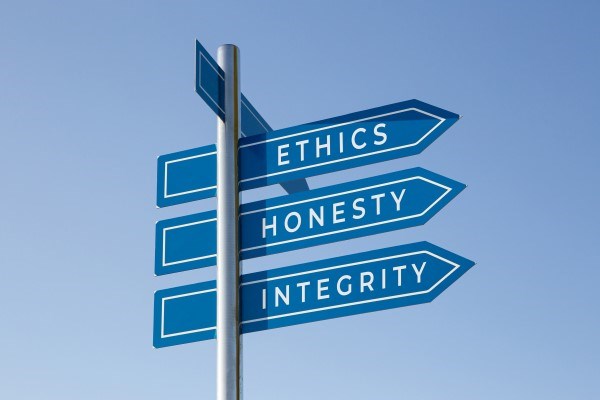In light of the recent uptick in gun violence and the controversy regarding legislation, we must be prepared to care for victims of mass casualty scenarios — but also for the alleged culprit of the crime.
In many of these attacks, the shooter survives and is treated in an emergency department following these heinous incidents.
As a new senior resident, I imagine myself in the position of the emergency physicians who treat alleged attackers. These physicians have to grapple with so many things simultaneously: maintaining composure, keeping the environment calm, dealing with concerns for their own personal safety, and managing the mountain of visceral, natural biases against the culprit, all while attempting to provide the alleged attacker with the same care provided to all other patients.
As providers, this is just one example of the many situations we face in the emergency department when our patients challenge us. We are inevitably put in situations where emotions of frustration, anger, anxiety, dread, and guilt are invoked — whether it be a rude patient, an ungrateful one, a demanding one, a racist one, or possibly one who tries to dismantle the sanctity of our society.
What is expected of us in these circumstances? The implications of the bioethical principle of justice means that we should strive to be fair and equal to all people.1 But in these difficult circumstances, is it possible to abstain from making moral judgments on patients?
Social scientists have found that moral judgment of patients is pervasive. It occurs not only when taking care of a patient who allegedly committed a criminal act, but also during daily scenarios when the appraisal of a patient’s social worth and culpability are routine. There is limited literature, however, on the impact of moral judgment in healthcare. Evidence suggests that moral appraisals are the result of a multiplex of variations in patient characteristics, physician characteristics, situational factors, and organizational factors.2
Based on research, it is extremely difficult to completely eliminate all biases — both implicit and explicit — from daily life, let alone patient care. But this is not to say you must treat every unfavorable patient. An article published in the New England Journal of Medicine provides a flowchart to help assess whether it is appropriate for patients to be reassigned per their request.3 The article recommends evaluating for stability first. If the patient is unstable, you must treat to the best of your ability. If the patient is stable, then it is possible that you can ask more questions about why the patient would like a reassignment. If the rationale may be rooted in bigotry, then one might explore options for the patient and recognize the impact this may have on the physician. At that point, it may be appropriate to negotiate, offer transfer, accommodate, or limit unacceptable conduct.
In terms of the physician’s requests, ethically, it is clear that when biases and conflict interfere with providing neutral care to the patient, and the patient is stable, then it may be appropriate to defer care to another party. With alleged shooters, the Emergency Medical Treatment and Labor Act (EMTALA) protects their care, ensuring public access to emergency services.4 When the option of transfer is not available, particularly in emergent situations, the circumstances are tough. However, there are steps that can be taken to ensure that tough situations are handled in an ethical manner. An important step is acknowledging the bias. This is difficult. It requires honesty and practice.
Although more literature in this space is necessary, research by The Journal of Philosophy, Ethics, and Humanities in Medicine shows that “cognitive reappraisal is shown to have far healthier personal and interpersonal consequences than emotion suppression strategies.”2 This means that understanding the bias or negative reaction is important, but also shifting the focus to something else, like the professional commitment or the ethical standard that is required for a physician, can help make an otherwise dreadful situation more bearable.
Debriefing, leaning on peers, and seeking mental health help are all important steps in caring for unfavorable patients. Taking a pause to acknowledge the emotional toll that this may take on you, approaching the situation in a systematic format, and defining your role as a physician may help mitigate the psychological impact on the provider and ultimately promote ethical care.
References
- Thompson IE. Fundamental ethical principles in health care. British Medical Journal (Clinical Research Ed.). 1987;295(6611):1461–1465.
- Hill TE. (2010). How clinicians make (or avoid) moral judgments of patients: implications of the evidence for relationships and research. Philosophy, Ethics, and Humanities in Medicine : PEHM. 2010;5,11. http://doi.org/10.1186/1747-5341-5-11
- Paul-Emile K, Smith AK, Lo B, Fernández A. Dealing with Racist Patients. New England Journal of Medicine. 2016;374(8):708-711. doi:10.1056/nejmp1514939
- Emergency Medical Treatment and Labor Act (EMTALA). CMS.gov (http://www.cms.gov/Regulations-and-Guidance/Legislation/EMTALA/index.html?redirect=/EMTALA).
- Glaser BG, Strauss AL. The Social Loss of Dying Patients. Am J Nurs. 1964 Jun;64:119-21. PMID: 14146719



